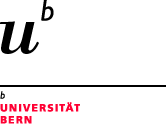Laboratory for High Energy Physics |

Physics Applications in Security
A promising new technology proposed for the vast area of security
applications is the Gamma Nuclear Resonant Absorbtion (GNRA)
radiography. It assumes the use of high-resolution tracking detectors
with a substantial content of Nitrogen as gamma-to-charged particle
conversion medium. An appealing approach that we are developing is to
use liquid Argon time projection chambers (TPC) for this purpose, doped
with liquid Nitrogen to a concentration that provides high gamma
conversion efficiency in the resonant band on one side, and sufficient
charge transport and collection performance on the other. Nitrogen
nucleus excited by the gamma absorbed in the resonant band relaxes to
the Carbon nucleus with emission of the proton. Gamma outside of the
resonant band are mainly visible through Compton scattering in
Argon-Nitrogen mixture.
The high spatial resolution detector, able to distinguish such protons
from Compton electrons is therefore able to see the gamma rays intensity
ditribution specifically in the resonant band of Nitrogen absorbtion
spectrum. On the other side same reaction happens with gammas in the
inspected object. This allows to see the contrast of the Nitrogen
content in this object. Such information in combination with the density
contrast from the out-of-resonance gammas allows efficiently detect
some specific substances, in particular many explosive materials. We
develop a TPC on the mixture of liquid Argon and Nitrogen, which is a
very promising detector for such application.
